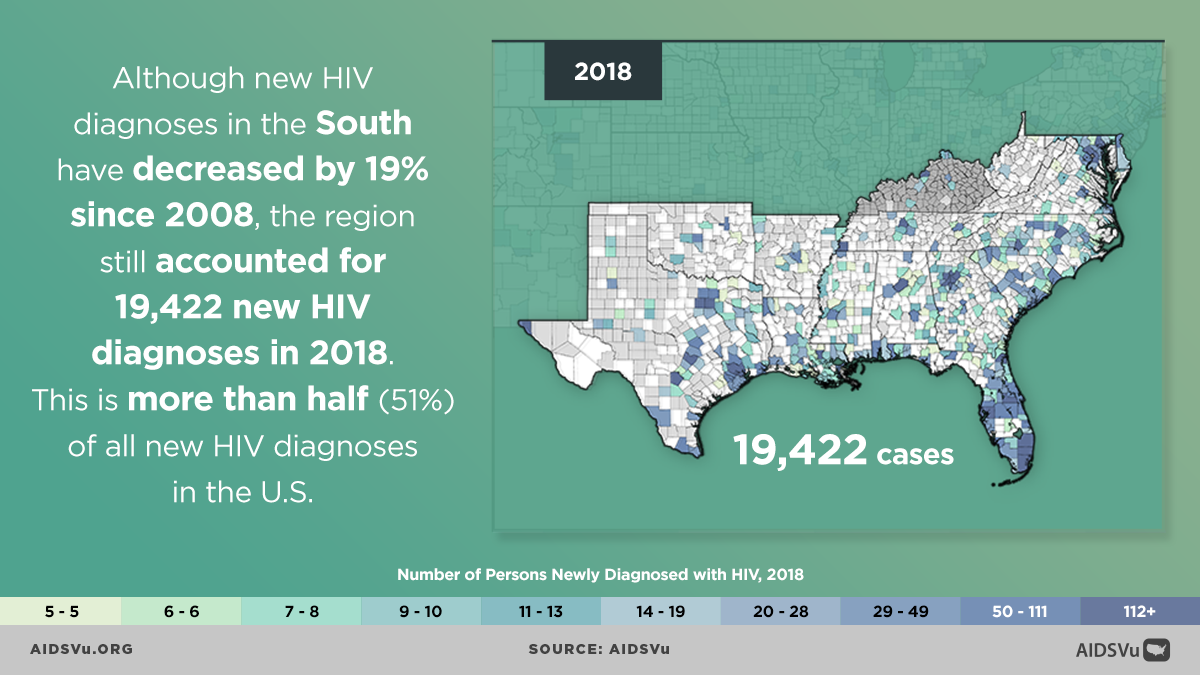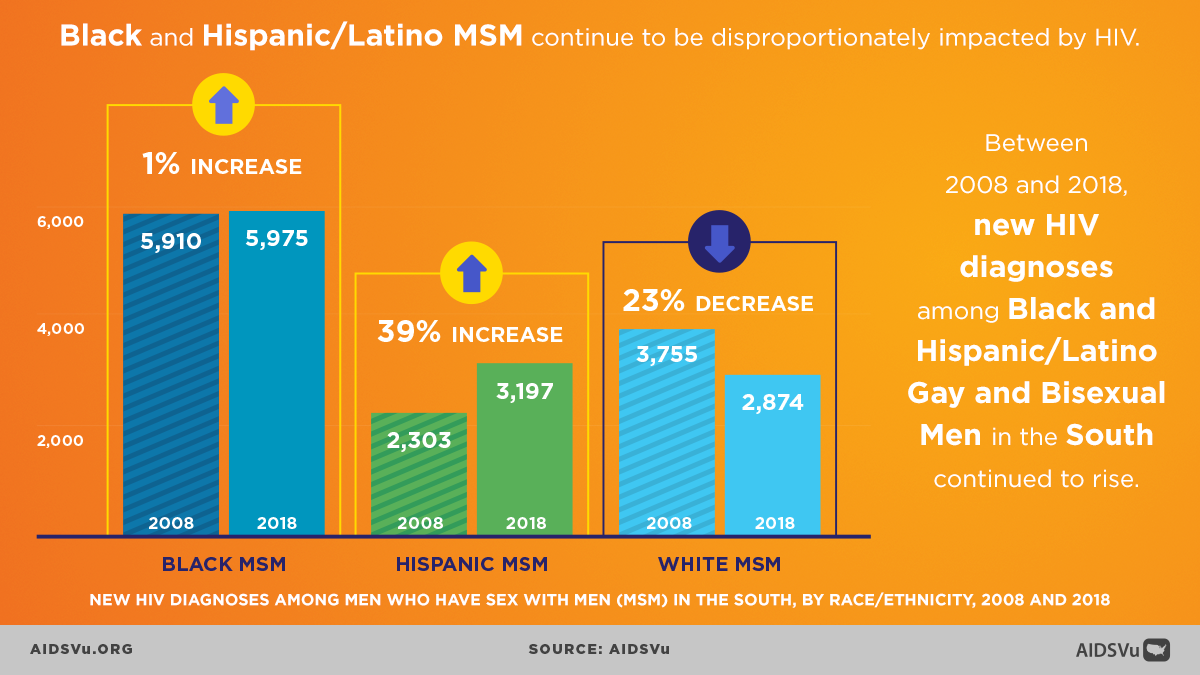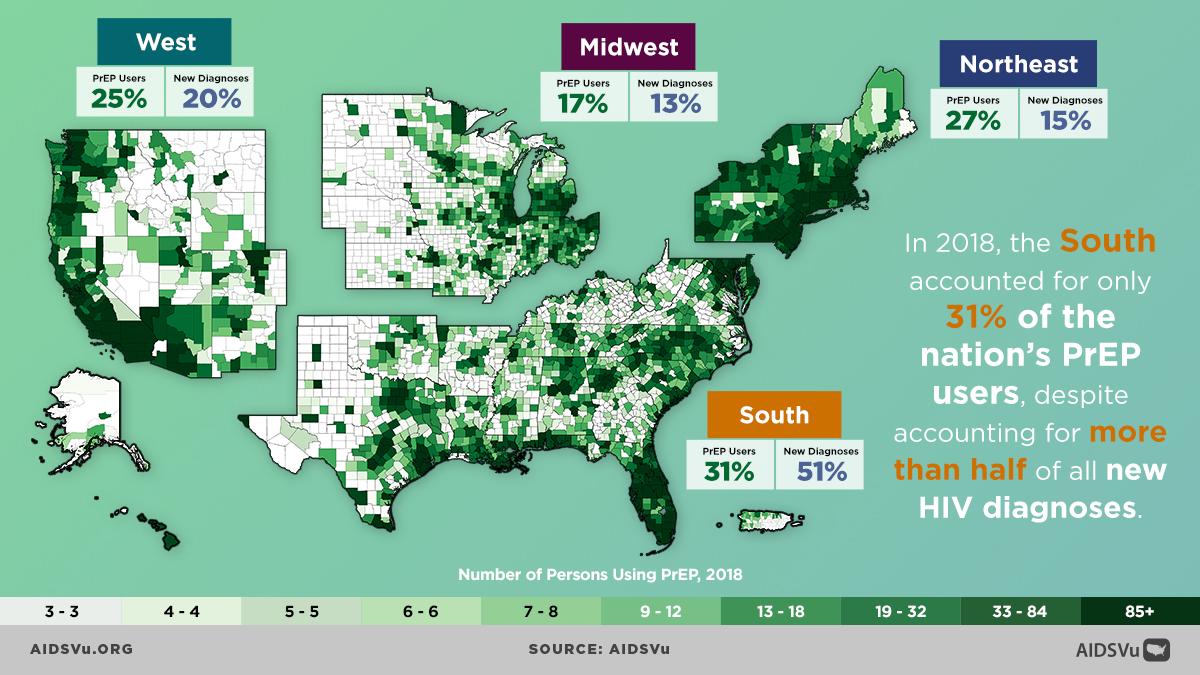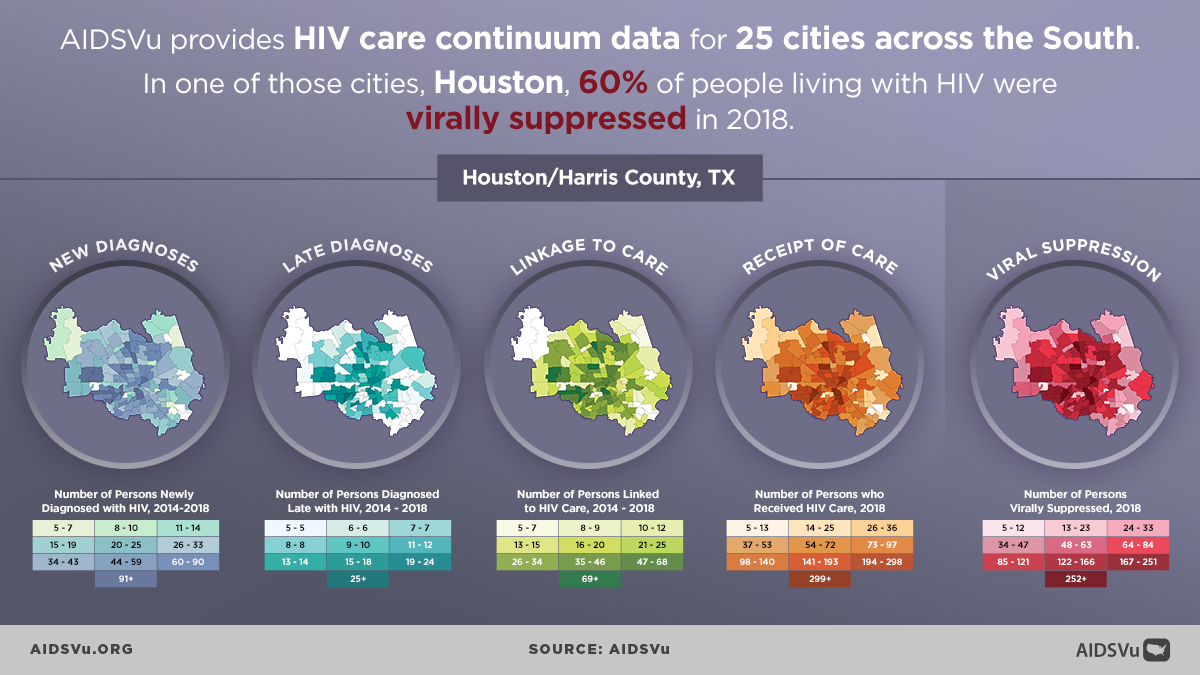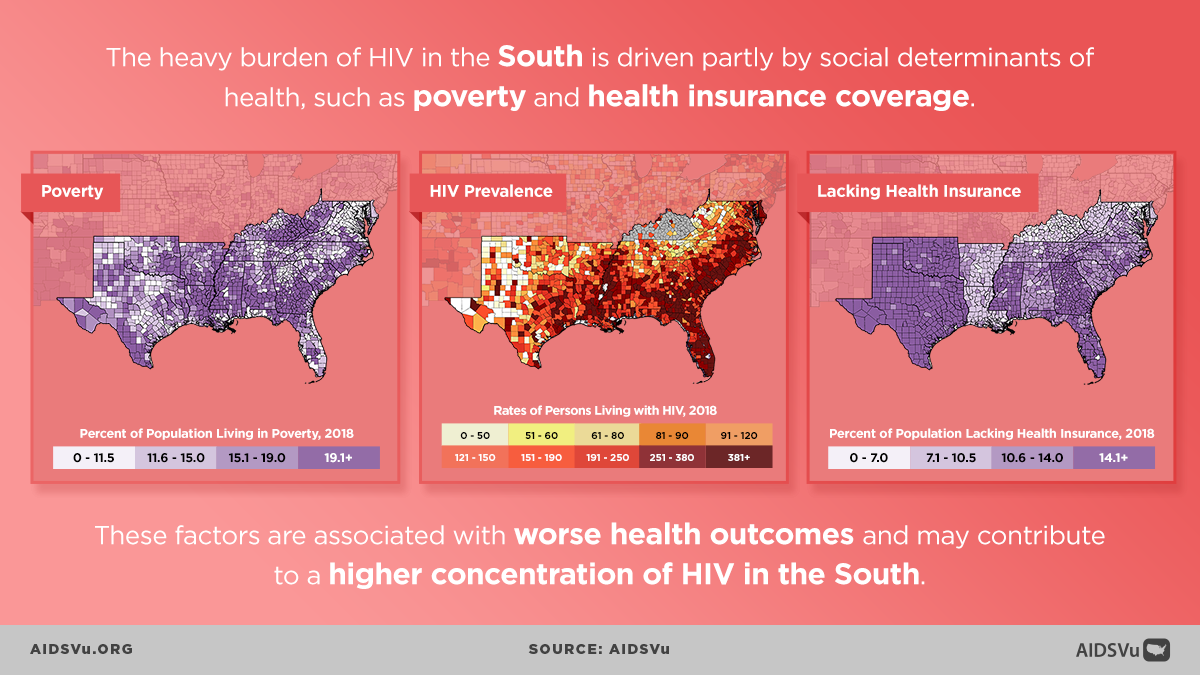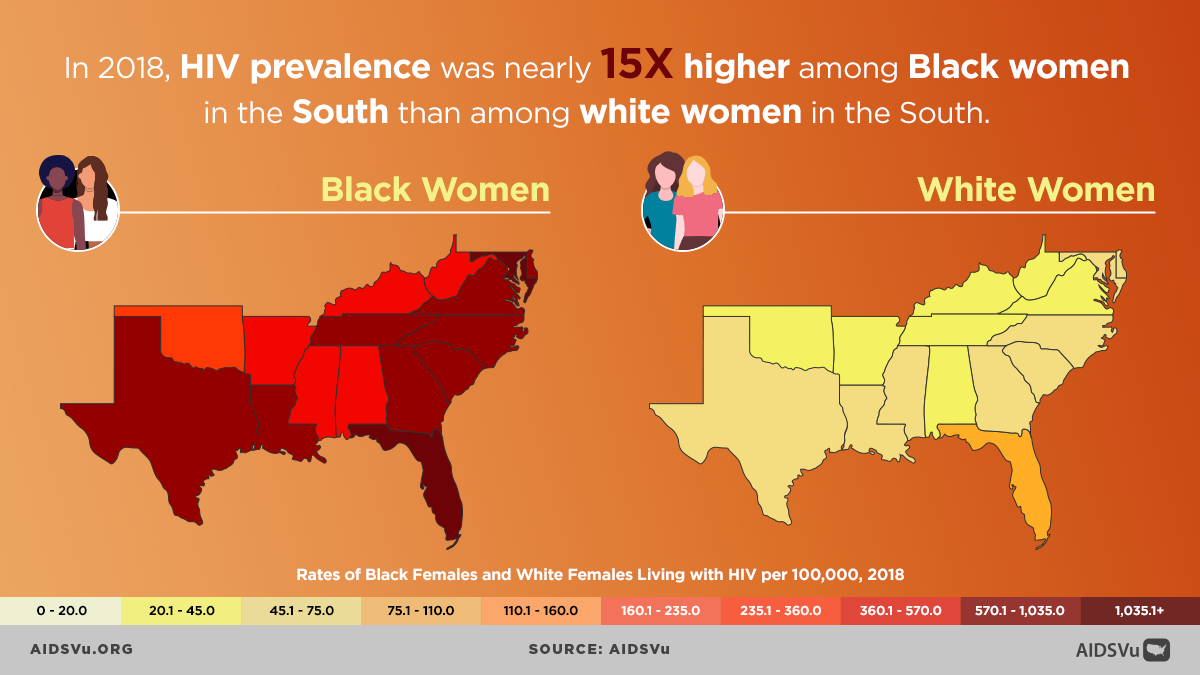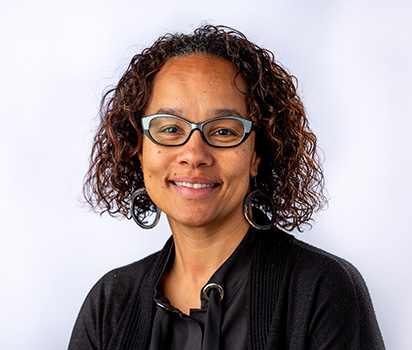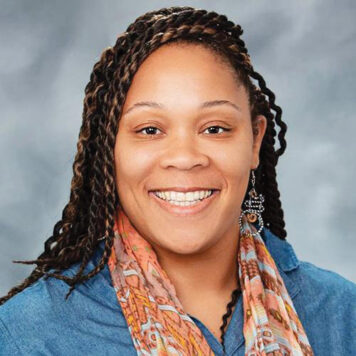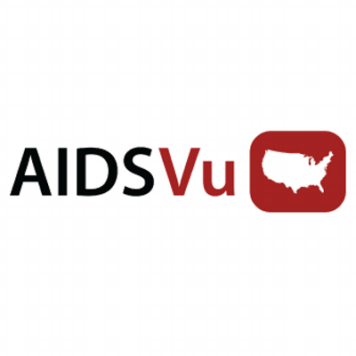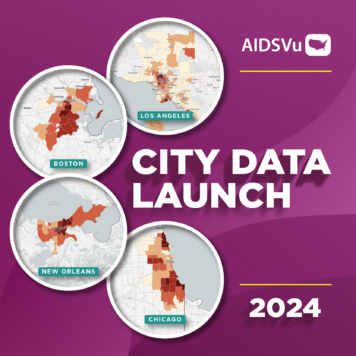On August 20th, AIDSVu recognizes Southern HIV/AIDS Awareness Day to raise awareness, erase HIV related stigma, and advocate for resources and solutions needed to reduce the number of new HIV infections in the South.
Although HIV impacts the entire country, the South experiences the greatest burden of new HIV infections, diagnoses, and deaths of any U.S. region. In 2018, the South accounted for 51% of all new HIV diagnoses, despite only comprising 38% of the U.S. population.
The HIV epidemic in the South has recently received more attention due to the years-long efforts of stakeholders to raise awareness and advocate for needed resources. In 2019, the U.S. Department of Health and Human Services (HHS) launched Ending the HIV Epidemic: A Plan for America (EHE), a federal initiative that seeks to end the HIV epidemic in the U.S. by 2030. The EHE initiative prioritizes the 48 counties with the highest number of new HIV diagnoses along with San Juan, PR and Washington, DC plus seven states (Alabama, Arkansas, Kentucky, Mississippi, Missouri, Oklahoma, and South Carolina) with a substantial rural HIV burden.
Of the 48 counties prioritized by the EHE initiative, 48% are in the South.
The HIV crisis in the South requires all of us to be engaged in community action to address the health disparities and HIV-related stigma that perpetuate this epidemic. On this Southern HIV/AIDS Awareness Day, join with advocates, service providers, researchers, and people living with HIV to continue to raise awareness about HIV in the South and demand meaningful actions. To support this effort, AIDSVu is sharing new resources to illustrate the HIV epidemic in the South, including:
- A series of new infographics highlighting data on HIV in the South
- A Deeper Look at HIV in the South: a page dedicated to exploring the disproportionate impact of HIV in the South
- ZIP code-level data showing HIV prevalence and new diagnoses (2018) for nearly 50 U.S. cities, including more than 25 Southern cities
- Comparison maps of social determinants of health– such as poverty, high school education, median household income, income inequality, and people without health insurance
- Service locators for HIV prevention, testing, and Ryan White care services, as well as enhanced service location sites for Stigma Reduction, Overdose Prevention/Reversal, Harm Reduction, and Trauma-Informed Care across the Deep South
- For more resources and information about HIV/AIDS in the South, check out the Southern AIDS Coalition’s collection of resources for Southern HIV/AIDS Awareness Day

